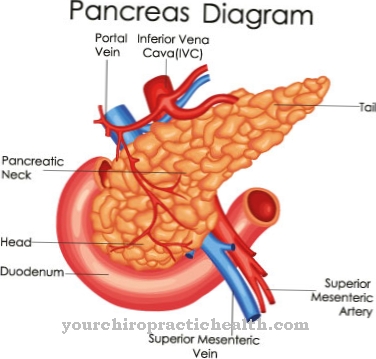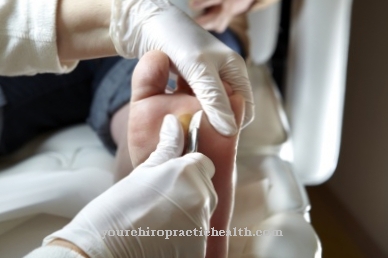The Psoriasis is a skin disease that occurs quite often in Germany. Typical signs are red areas of skin that stand out with their silvery-white scales. In addition, these affected areas of the skin are often clearly delineated and raised and can itch a lot. So far there is still no complete cure, although the symptoms can be greatly alleviated by various therapies.
What is psoriasis?

Psoriasis is a skin disorder that is characterized by very high levels of flaking. The disease is benign and not dangerous. Nevertheless, those affected mainly suffer from the fact that the skin becomes chronically inflamed and the psoriasis keeps coming back, even if there is a slight improvement in between. There is no need to fear infection. In families in which this disease occurs, it is very possible that other relatives will fall ill, as psoriasis can be inherited.
The disease can severely reduce the patient's quality of life. The skin can have reddish spots and white scales, so that other people often look. The affected areas also itch and cannot get rid of the annoying scales without bleeding. Psoriasis usually progresses in bouts, but never goes completely back because the disease is not yet curable.
causes
The exact cause of psoriasis is not yet known. It has now been proven that the disease is hereditary. However, the disease does not necessarily have to break out. Both children and adults, as well as men and women, can be affected, so that the disease does not depend on age. However, most of the traits are passed on through the father.
It is now assumed that, in addition to the corresponding, inherited genes, some other criteria must be met that favor the outbreak of psoriasis. For example, stetococci can contribute to the occurrence of the disease. Increased stress over a longer period of time or different medications are also triggers. The climate may also favor the outbreak of psoriasis.
Symptoms, ailments & signs
Psoriasis vulgaris is mainly characterized by uncontrolled, rapid and benign growth of the epidermis. The skin renewal of the epidermis takes place seven times faster than in a healthy person. The renewal of the epidermis in people with psoriasis only takes four instead of 28 days.
As a result, shiny scales appear that appear silvery-white. The affected skin areas are very well supplied with blood and show inflammatory redness. Psoriasis preferentially shows up on the extensor sides of the arms or legs. For example, the shins or elbows often show signs of skin.
Dandruff can also appear on the scalp, back or in the genital area. The areas that are inflamed are often itchy. If psoriasis also manifests itself on the fingers and toenails, the so-called speckled nails are part of the clinical picture. There are tiny indentations in the nail plate and / or brownish discoloration under the nail.
Every fifth patient with psoriasis not only suffers from the typical skin changes, but also from joint problems. This psoriatic arthritis is accompanied by painful swellings of the toe or finger joints. In particularly severe cases, the joints can be completely deformed.
Course of disease
The psoriasis A distinction is made between type 1 and type 2 psoriasus vulgaris. Type 1 is the early form of the disease and has significantly more people affected in each age group, while the later form, type 2, occurs more in people who are at least 40 years old.
Due to the interplay of several factors, the first outbreak of the disease occurs at some point, and the psoriasis usually reappears afterwards. Especially in summer, those affected can experience a significant improvement, but psoriasis cannot be cured and will come back at some point.
Complications
In psoriasis patients, the longer the disease progresses, the internal organs can also be affected: psoriasis is not limited to the skin surface, but can also manifest itself inside the body. Joint inflammation or athritis can also occur in the course of chronic diseases.
Extensive psoriasis goes hand in hand with the risk of so-called superinfections. The affected area is also infected by yeasts or bacteria, which makes the disease worse. The metabolism can also be affected in the form of obesity, lipid metabolism disorders, diabetes and high blood pressure.
This goes hand in hand with an increased risk of cardiovascular diseases and heart attacks. Life expectancy can decrease significantly. Likewise, an increased susceptibility to inflammatory bowel diseases has been observed in psoriasis patients, including, for example, Crohn's disease.
According to recent studies, psoriasis patients appear to be more prone to depressive disorders and alcohol abuse. This is associated with the psychological stress that can be associated with the disease.
Recently there has been increasing evidence that psoriasis significantly increases the risk of complications during pregnancy. The exact relationships have not been adequately researched, but a risk factor could be the medication with which psoriasis is usually treated for years.
When should you go to the doctor?
If you have psoriasis, you should see a dermatologist. Especially if it looks like the lichen is expanding or getting stronger. A dermatologist should also be spoken to if it occurs suddenly or if the lichen has existed for a long time. If psoriasis is left untreated for too long, it can also damage the bones and internal organs.
Treatment & Therapy
Is curable psoriasis Although not, you can still alleviate the suffering of those affected and keep the relapses as low as possible. In addition to avoiding excessive stress, ultraviolet radiation is particularly suitable as a therapy. The immune processes are inhibited by the radiation and thus also have an effect on the increased cell growth that is responsible for psoriasis.
Therefore, in most cases, the disease disappears in summer under the influence of the sun. The chances of treatment with this therapy are very high, nevertheless, it should be decided individually together with a doctor which radiation is most suitable. In addition to treatment with UV rays, drugs are usually used that can at least reduce psoriasis. A climate change could also be useful as a further measure to combat the symptoms.
Aftercare
Psoriasis can be treated well with care products, medicines, and lifestyle changes. If they are dealt with comprehensively, they usually subside quickly. A follow-up examination is necessary after the treatment. The aftercare examination is carried out by the responsible dermatologist who has already taken over the treatment.
If further complications are noticed, treatment must be restarted. In many patients, psoriasis develops into a chronic disease. Patients suffering from chronic psoriasis should consult their dermatologist regularly.
The use of care products, but also scratching, can cause irritation and injury to the scalp. As part of the follow-up exam, a physical exam and anamnesis will be performed. First, there is a conversation with the patient. The doctor clarifies the patient's most important questions and inquires about any symptoms as well as side effects and interactions of the treatment.
A physical exam will then take place. The doctor checks the scalp for dandruff and, if necessary, takes a sample that is then examined in the laboratory. If no abnormalities are found, the treatment can be completed. Further follow-up examinations are not necessary for cured psoriasis. The doctor only needs to be consulted again if the dandruff returns.
You can do that yourself
Patients suffering from psoriasis can support the medically prescribed therapy with naturopathic methods. Many of those affected find bathing in warm salt water to be particularly beneficial. To do this, two to three pounds of sea salt are added to the bath water. A tablespoon of coconut oil is said to provide additional relief.
Many patients also react very positively to rubs with [[Miracle cider_apple vinegar: _Gut_für_die_Schönheit_und_Gesundheit apple cider vinegar]. To do this, high-quality organic apple cider vinegar is mixed with warm water in a ratio of one to one and the affected areas of skin are then carefully dabbed with a washcloth soaked in it. The vinegar soothes the itching and loosens the cuticle.
If psoriasis flare-ups occur regularly during or shortly after periods of stress, relaxation techniques such as yoga and tai chi can also help. Stress should then also be avoided as much as possible. Sometimes there is also a relationship between psoriasis and diet. Obesity in particular seems to have a negative impact on the condition of the skin. People with a body mass index (BMI) of more than 25 should therefore consider weight loss.
The secondary infections that are often observed are mostly due to the fact that the patient scratches the itchy areas of the skin with their bare hands. In addition to medication containing cortisone, peanut oil and low-viscosity paraffin also help against itching. In addition, in severe cases, those affected should wear cotton gloves. This at least prevents the fingernails from irritating or injuring the diseased skin areas.

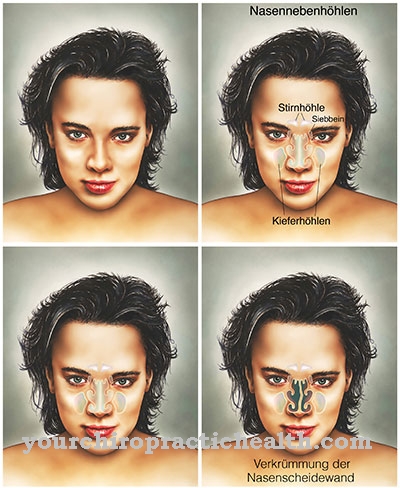
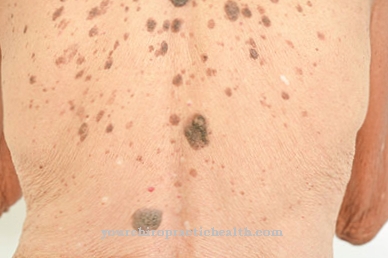
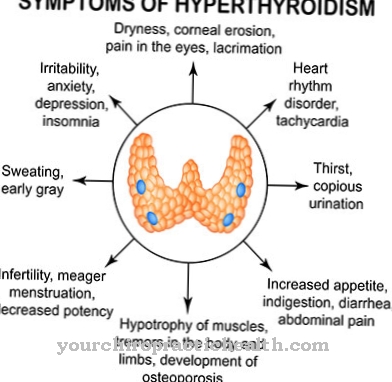
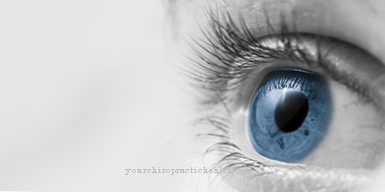




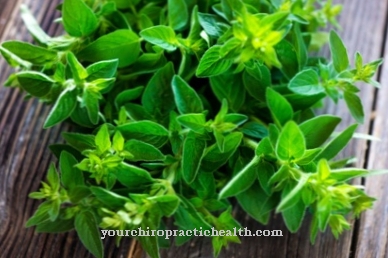

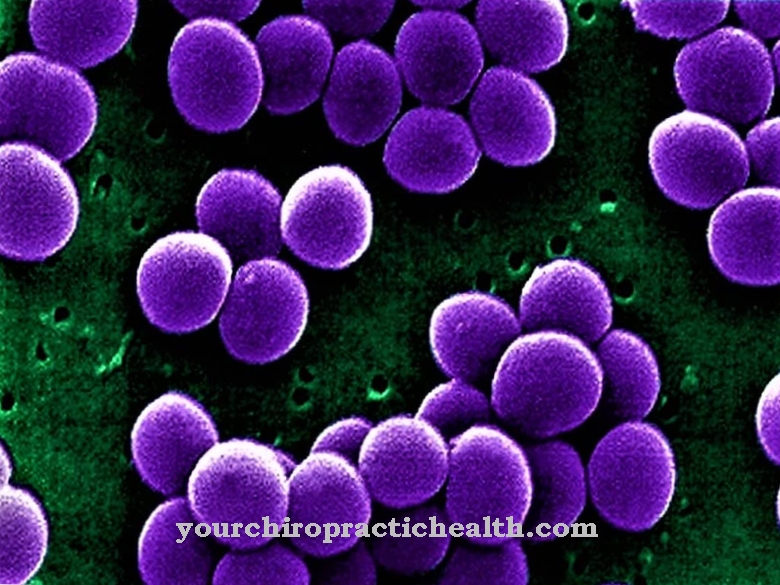

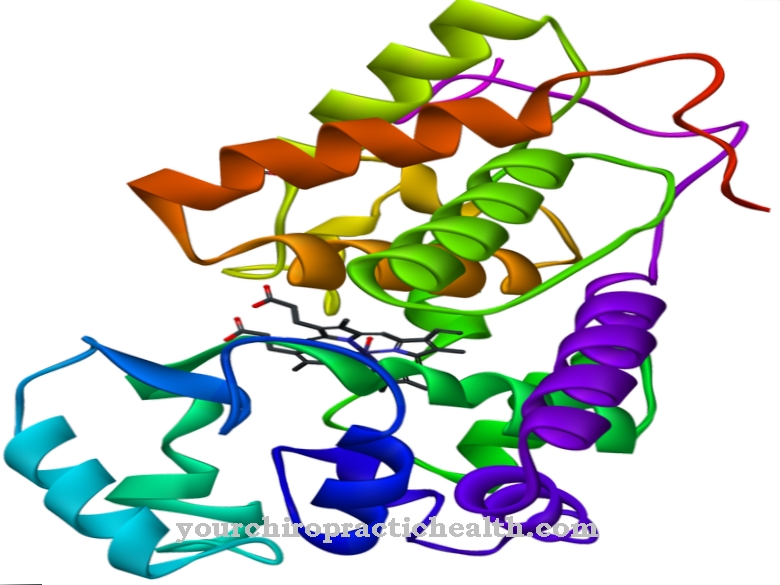
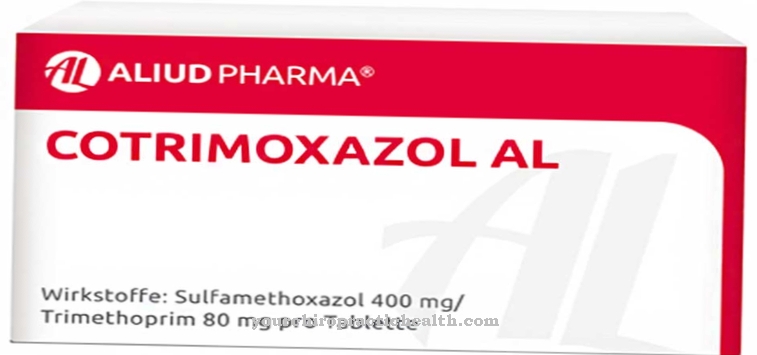

.jpg)
.jpg)



.jpg)


